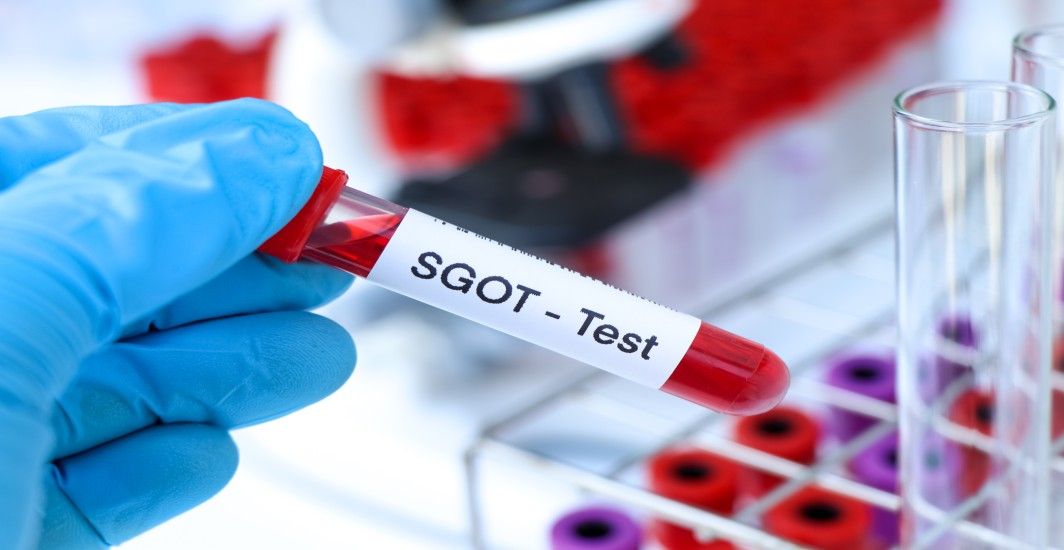General Health
Bloating After Meals? These Tests Can Pinpoint the Cause
7 min read
By Apollo 24|7, Published on - 08 July 2025
Share this article
0
0 like
.jpg?tr=q-80)
Feeling uncomfortably full, gassy, or swollen in your abdomen after eating? This common experience, known as bloating after meals, affects a vast number of adults. While often dismissed as a minor inconvenience, persistent or severe bloating can significantly impact daily life, causing discomfort, embarrassment, and a reduced quality of life. It can also be a signal from your body that something isn't quite right with your digestive system.
Ignoring persistent bloating or trying to manage it solely with dietary guesswork can prolong discomfort and, more importantly, delay the diagnosis of an underlying condition. Fortunately, a range of diagnostic tests is available to help pinpoint the exact cause of your post-meal bloating. This article will explore the common culprits behind this troublesome symptom and outline the key investigations that can offer clarity, leading to effective management and a significant improvement in your digestive health.
What Causes Bloating After Meals?
Bloating after eating happens when your digestive system fills with air or gas. While often not serious, it can cause discomfort ranging from mild fullness to sharp pain and visible swelling of the abdomen. Knowing what causes bloating can help you find the right treatment and feel better faster.
Common Causes of Bloating After Meals:
- Eating Too Much or Too Quickly: Eating large meals, especially those high in fat, can slow digestion and make you feel overly full. Eating too fast can cause you to swallow extra air, which leads to more gas in your stomach and intestines.
- Gas from Digestion: Certain foods produce more gas when broken down by your digestive system. Foods high in fermentable carbohydrates, known as FODMAPs, such as beans, lentils, broccoli, onions, some fruits, and dairy products, often cause gas. Gut bacteria ferment these foods, producing gases like hydrogen, methane, and carbon dioxide.
- Food Intolerances or Allergies:
Lactose Intolerance: Many people lack enough of the enzyme lactase needed to digest lactose, the sugar in dairy. Undigested lactose ferments in the colon, causing gas, bloating, and diarrhoea.
Gluten Sensitivity: While celiac disease is a serious autoimmune disorder triggered by gluten, some people experience gluten sensitivity without the immune damage. Eating gluten (found in wheat, barley, and rye) can still cause bloating and discomfort.
Other Sensitivities: Some people react to specific sugars like fructose or to artificial sweeteners, which may cause bloating. - Slow Digestive Movement (Poor Gut Motility): If your digestive muscles don’t move food efficiently, food and gas can build up, causing bloating and constipation. Stress, diet, and certain health conditions can affect gut motility.
- Imbalance of Gut Bacteria (Dysbiosis): Your gut contains a community of helpful bacteria that aid digestion. When harmful bacteria outnumber the good ones, it can lead to more gas production, inflammation, and bloating.
- Underlying Digestive Conditions: Persistent bloating may signal an underlying digestive disorder. Conditions like Irritable Bowel Syndrome (IBS), Small Intestinal Bacterial Overgrowth (SIBO), and Coeliac Disease often involve gas, abdominal discomfort, and changes in bowel habits or nutrient absorption. Other causes include Gastroesophageal Reflux Disease (GERD) and Inflammatory Bowel Disease (IBD), such as Crohn’s disease or ulcerative colitis, which can lead to bloating due to chronic inflammation or irritation in the gut.
Recognising these potential causes is the first step towards seeking the right diagnostic path and ultimately finding relief.
When Should You See a Doctor for Bloating?
Occasional bloating after a large meal is common and usually not a cause for concern. However, if bloating is persistent, severe, or occurs alongside other worrying symptoms, it is important to seek medical evaluation. Ignoring these signs can prolong discomfort and delay diagnosis of potentially serious conditions.
You should consult a doctor if you experience any of the following warning signs:
- Persistent or worsening bloating: Bloating that happens frequently, lasts several days, or gradually gets worse.
- Unexplained weight loss: Losing weight without trying can indicate a serious health issue.
- Severe abdominal pain: Intense or cramping pain that does not improve after passing gas or a bowel movement.
- Changes in bowel habits: New or worsening constipation, diarrhoea, or alternating between the two, as well as changes in stool colour or consistency.
- Blood in stool or rectal bleeding: Any visible blood, whether bright red or dark and tarry, requires immediate medical attention.
- Vomiting or nausea: Frequent vomiting or ongoing nausea after meals.
- Difficulty swallowing: Feeling that food is stuck in your throat or chest.
- Feeling full quickly: Becoming uncomfortably full after eating very little.
- Fever: An unexplained fever alongside bloating could signal infection or inflammation.
Even without these red flags, if bloating significantly affects your daily life, causes distress, or if you have any concerns, it is wise to consult a healthcare professional. A doctor can take your medical history, perform a physical exam, and order the necessary tests to find the cause of your bloating and recommend appropriate treatment. Avoid self-diagnosing based on online information, as this can be misleading and delay important care.
Lab Tests That Can Help Identify the Cause of Your Bloating
If bloating is becoming a frequent or uncomfortable part of your life, lab tests can offer important clues. These tests help identify digestive issues, food-related conditions, infections, and hormonal imbalances that might be contributing to your symptoms. Here’s a look at the most commonly recommended evaluations:
1. Hydrogen-Methane Breath Test (For SIBO)
This test measures gases in your breath after you drink a sugar solution. It helps detect Small Intestinal Bacterial Overgrowth (SIBO), a condition where bacteria build up in the small intestine and ferment food too early in the digestive process, causing gas and bloating.
2. Lactose Intolerance Test (Hydrogen Breath Test)
If dairy products make you uncomfortable, your provider may recommend this test. It measures your body’s ability to digest lactose, the sugar in milk. When lactose isn’t properly absorbed, it can lead to fermentation in the colon and cause bloating, gas, and diarrhoea.
3. Food Allergy and Sensitivity Testing (IgE and IgG)
- IgE antibody tests are used to detect immediate allergic reactions that may cause symptoms like swelling, rash, or even gastrointestinal discomfort.
- IgG antibody tests are often used to look for delayed food sensitivities, but their accuracy is debated among medical professionals. They might be considered if standard allergy tests are negative and symptoms persist.
4. Coeliac Disease Antibody Tests (tTG-IgA and EMA)
If gluten-containing foods trigger symptoms, a blood test for coeliac disease may be appropriate. Tests like tissue transglutaminase (tTG-IgA) and endomysial antibody (EMA) look for signs of an immune reaction that damages the small intestine and often causes bloating, fatigue, or nutrient deficiencies.
5. Helicobacter pylori Testing
An infection with H. pylori, a common stomach bacterium, can lead to ulcers, gastritis, or persistent bloating. Testing options include:
- Urea Breath Test (highly accurate for active infection)
- Stool Antigen Test
- Blood Antibody Test (useful for detecting past exposure)
6. Pancreatic Function Tests
The pancreas helps digest food by releasing digestive enzymes. If it’s underactive, food may not be fully broken down, leading to bloating and discomfort. Tests include:
- Blood tests for amylase and lipase
- Stool pancreatic elastase, which measures enzyme activity in your stool
7. Thyroid Function Tests (TSH, Free T4, Free T3)
Your thyroid regulates metabolism, including the speed of digestion. If it’s not working well (as in hypothyroidism), you may notice bloating and sluggish digestion. These tests help assess your thyroid’s hormone levels and overall function.
Get Tested Easily with Apollo 24/7
Apollo 24/7 offers convenient access to many of the lab tests mentioned above, including thyroid function panels, food allergy testing, H. pylori screening, and more. With home sample collection, fast report delivery, and a wide network of certified diagnostic centres, Apollo 24/7 makes it easier for you to get tested without the hassle of visiting a lab. You can book tests directly through their website or App, and receive results digitally, helping you and your doctor take the next steps toward managing your bloating symptoms effectively.
Conclusion
Persistent bloating after meals can be more than just an occasional nuisance. It often reflects an underlying issue in your digestive system that deserves attention. By learning about the common causes and understanding when it's important to seek medical advice, you’re taking the first step toward lasting relief. Thankfully, modern diagnostic tests can help identify the root of your symptoms, leading to targeted and effective solutions. With accessible services like those offered through Apollo 24/7, getting the help you need has never been easier. Listen to your body, take action early, and you’ll be well on your way to feeling more comfortable and confident after every meal.
General Health
Leave Comment
Recommended for you

General Health
Vitamin C Deficiency: Overcome It With These 5 Amla Supplements
Vitamin C, also called ascorbic acid, is an essential water-soluble nutrient. Since it is not produced and stored in the body, it has to be obtained daily through food or supplements. It helps in fighting infections like flu, cold, and cough.

General Health
Monitoring Liver or Heart Health? This Test Helps Assess Organ Function and Damage
Monitoring liver or heart health? This essential test helps evaluate organ function and detect potential damage early. Learn how it supports accurate diagnosis.
.jpg?tr=q-80)
General Health
Monitoring Cancer Treatment or Checking for Recurrence? Get This Blood Test to Track Tumour Activity
Monitoring cancer treatment progress or checking for recurrence? A tumour marker blood test can help track cancer activity and guide your care plan. Learn how it works.
Subscribe
Sign up for our free Health Library Daily Newsletter
Get doctor-approved health tips, news, and more.
Visual Stories

Could There Be More to Your Snore?
Tap to continue exploring
Recommended for you

General Health
Vitamin C Deficiency: Overcome It With These 5 Amla Supplements
Vitamin C, also called ascorbic acid, is an essential water-soluble nutrient. Since it is not produced and stored in the body, it has to be obtained daily through food or supplements. It helps in fighting infections like flu, cold, and cough.

General Health
Monitoring Liver or Heart Health? This Test Helps Assess Organ Function and Damage
Monitoring liver or heart health? This essential test helps evaluate organ function and detect potential damage early. Learn how it supports accurate diagnosis.
.jpg?tr=q-80)
General Health
Monitoring Cancer Treatment or Checking for Recurrence? Get This Blood Test to Track Tumour Activity
Monitoring cancer treatment progress or checking for recurrence? A tumour marker blood test can help track cancer activity and guide your care plan. Learn how it works.